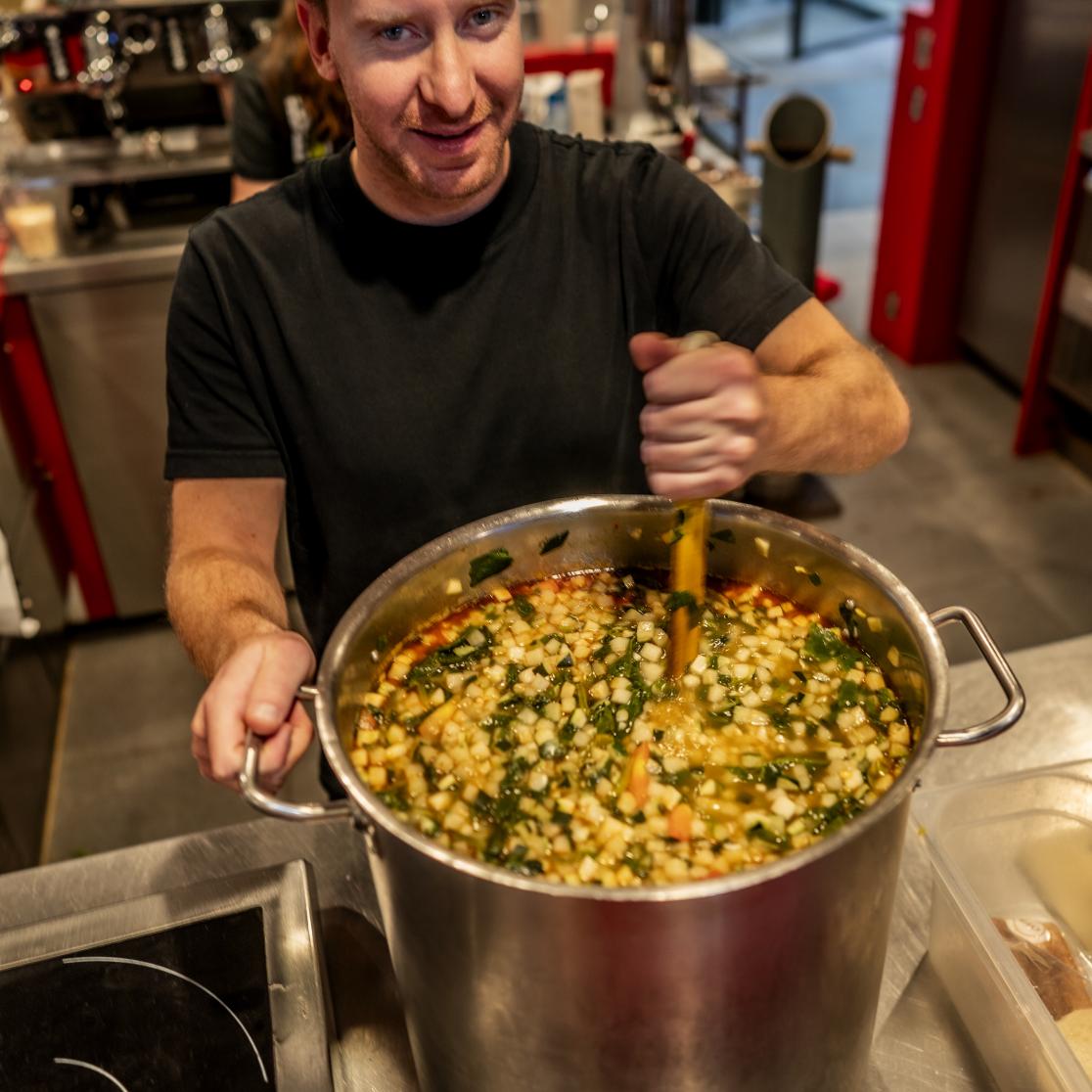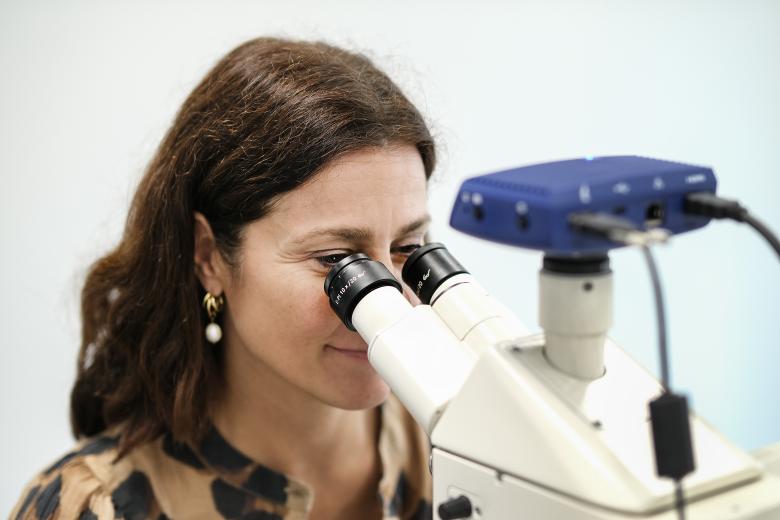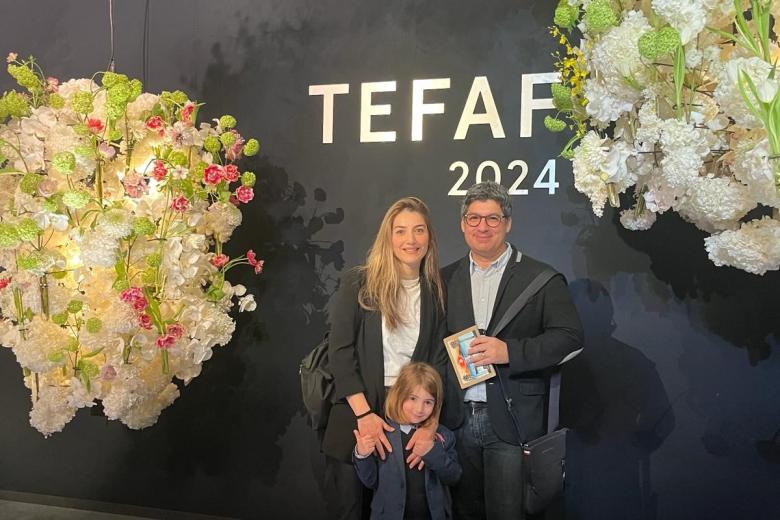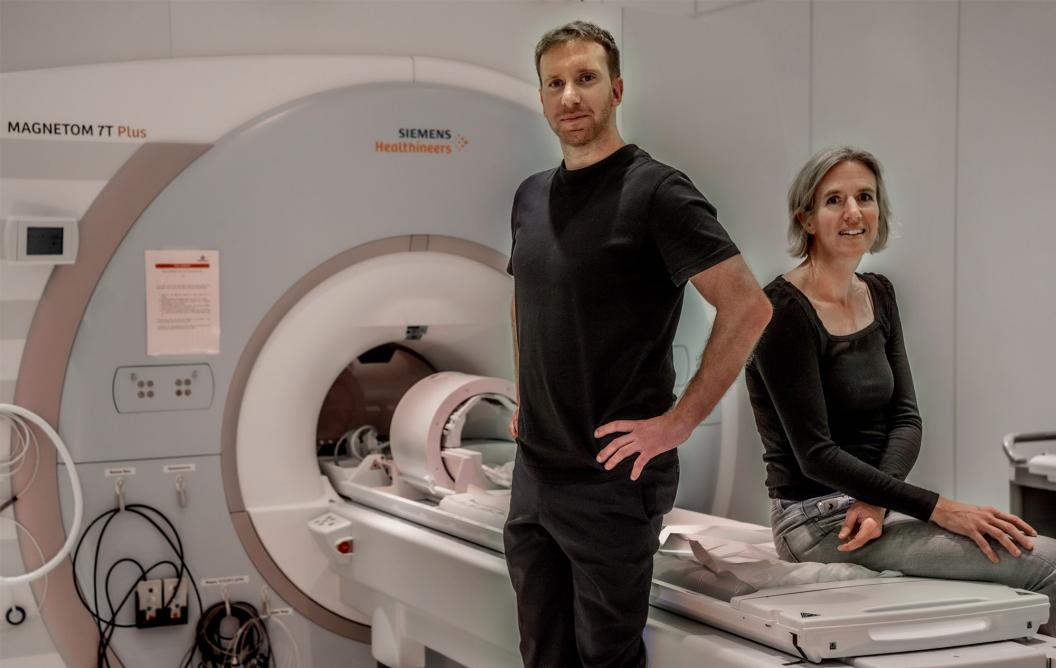Tackling obesity through behavioural change
Does she ever indulge in pizza? “Absolutely! And crisps, too”, laughs Anne Roefs, professor of Psychology and Neuroscience of Abnormal Eating and head of the Eat Lab research group at Maastricht University. Equally, Leo Pimpini, a native of Venice who completed his PhD under Roefs’s supervision, is not averse to a good tiramisu or lasagne.
Both researchers come across as sociable and active, able to enjoy life without piling on the kilos. They also share an interest in cooking. Pimpini’s PhD supervisors even gifted him a Japanese chef’s knife engraved with the words Master Chef Dr Pimpini. Have they noticed any cultural differences between them? “Definitely,” Pimpini says, grinning. “Anne drinks cappuccino in the afternoon. We don’t do that in Italy. But nobody’s perfect, not even my friend Anne—my rock in the academic world.”
Misconceptions
Pimpini’s PhD research is groundbreaking: when it comes to obesity, there are many misconceptions that stigmatise the problem without offering constructive solutions. His dissertation focuses on the effects of mindset and BMI on food-related cognition and behaviour. “UM has an excellent reputation in the field of cognitive science and MRI-based research. I knew early on that I wanted to come here for my PhD. And I never regretted it for a moment, especially now that I’ve been given a permanent position and recently got married.”
Behavioural change
Judging from her many podcast appearances, publications and newspaper articles, Anne Roefs’s expertise on eating behaviour, obesity and abnormal eating transcends academia. She knows how to translate research results for a general audience. “Our goal is to bring about behavioural change in society. This is essential: unhealthy food is advertised everywhere, and behavioural change is incredibly hard work. Ultimately, the best thing would be to transform our entire environment from obesogenic to health-promoting. I hope we’ll get there some day.”
Roefs and Pimpini conduct neuroscientific research using fMRI scanning. This technique shows which brain regions are activated when exposed to images of certain types of food. “The study addressed some persistent misconceptions related to obesity,” Pimpini explains. “For example, the brains of people with obesity are said to respond differently to images of high-calorie food; supposedly this is evidence of an overactive reward system. But there’s no consistent scientific evidence for this, nor did we find any in our recent fMRI research. It’s your mindset that determines how your reward system responds, regardless of your BMI.”
Genetic factors
“Obesity is still approached too much from a biomedical perspective,” Roefs says. “Genetic factors play a role, but it’s not so much the genes controlling metabolism, for example, but rather the genes that influence behaviour. That’s why behavioural change is key. Medications and diets don’t provide a lasting solution. You need to change your eating and exercise habits in a sustainable way. It’s not about eating fewer carbs or less fat; it’s about changing the way you think about food. It’s a mental process. And it may not be easy, but it’s necessary. Obesity and related problems, like cardiovascular diseases and diabetes, are a major challenge for society—that’s why we’re committed to addressing them.”
The researchers stress the importance of a sustainable lifestyle that doesn’t require total self-denial. “We mustn’t forget that our environment has changed drastically in recent decades. We’re constantly exposed to unhealthy food cues,” Pimpini explains. “But our DNA hasn’t changed over the centuries,” Roefs continues. “What has changed is the environment in which we live. It’s important to be aware of that, because we do have the power to make our environment healthier.”
Source of inspiration
Pimpini feels at home in Maastricht. “It’s more efficient than in Italy. And less hierarchical,” he adds. “His dissertation will serve as the basis for further research. We worked well together and will continue to do so,” Roefs says. Pimpini couldn’t agree more. “Anne is a source of inspiration for me. She helped me grow. Not literally, of course, given the subject matter,” he laughs.
Text: Ludo Diels
Photography: Harry Heuts

Leonardo Pimpini
Leonardo Pimpini holds a bachelor’s in philosophy from Ca’ Foscari University in Venice and a joint master’s in cognitive neuroscience from the universities of Trento and Osnabrück. His PhD research at the Maastricht Eat Lab was supervised by professors Anne Roefs and Anita Jansen. He has worked as an assistant professor at Maastricht University since September 2023.
Also read
-
SBE researchers involved in NWO research on the role of the pension sector in the sustainability transition
SBE professors Lisa Brüggen and Rob Bauer are part of a national, NWO-funded initiative exploring how Dutch pension funds can accelerate the transition to a sustainable society. The €750,000 project aims to align pension investments with participants’ sustainability preferences and practical legal...

-
Fresh air
Newly appointed professor Judith Sluimer (CARIM) talks about oxygen in heart functioning and the 'fresh air' the academic world needs.

-
Özge Gökdemir and Devrim Dumludağ reveal differences in competitive behaviour between women in the Netherlands
Economists and spouses Dr Özge Gökdemir and Professor Devrim Dumludağ conducted a study for Maastricht University that reveals differences in competitive behaviour between women in the Netherlands. Their findings will be published soon in a scholarly journal. Here, they give us a sneak peek.

